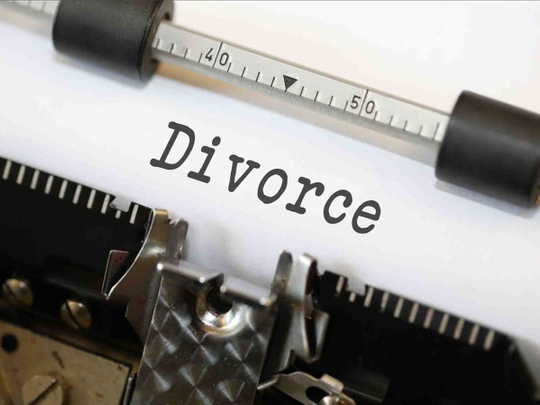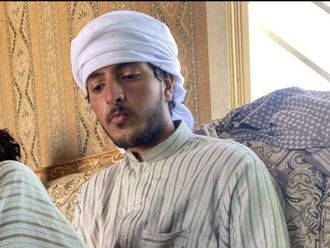
When Preetha and her husband Tanmay decided to get a divorce after 23 years of marriage, they had no idea where to start. At first they thought the only option available to them was to file for a divorce back home in India.
But getting a mutual consent divorce in India can be a time-consuming process. According to the law, the duration of the process is a minimum six months. Depending on the city where the couple is filing for a divorce, that period can even stretch up to 18 months.
Closer home in the UAE, an expat can however secure a mutual divorce as quick as one month from any Personal Status Courts located in all seven emirates. The Personal Status Courts are not attached to the main Court buildings but have their own set up.
“The Personal status court deals with family matters such as marriage, divorce, alimony, guardianship, custody and visitation, proof of maturity, proof of lineage and inheritance. They (the cases) are governed under Federal Law No. 28 of 2005,”
“Article 1 of the law provides that the law applies to all UAE residents –Emiratis and expats, Muslims and non-Muslims. Cases pertaining to non-Muslims are governed by special rules relating to their specific creed or sect. If both parties fail to reach an amicable agreement, the dispute is referred to the Court of First Instance,” he added.
So when Preetha and Tanmay heard about the Personal Status Court, the couple decided to file for a mutual divorce here for the sheer speed and convenience involved.
“Getting a divorce need not be a painful affair especially when the couple have decided to move on for better reasons. Not every divorce is painful or filled with sorrow and grief.
"Sometimes a couple is not compatible with each other and they should be given a chance to separate and move on in the quickest possible manner,” Preetha told Gulf News.
The couple – both in their mid-40s, working for private firms in Dubai - hired a lawyer and thus began their divorce proceedings. They were married in 1995 under the Hindu Marriage Act. But the Personal Status deals with family related issues of non-Muslims as well and that is why more expats are taking the route of filing a divorce in the UAE, rather than their home-country.
Ali Haddad who heads Haddad & Associates and is also chairman at Lawyer Business Group said divorce rates are among the highest in the Gulf region.
According to the Dubai Statistics Centre, this year, 984 divorce certificates were issued. During the first quarter 362 divorces to couples were granted, 349 in the second quarter and 273 in the third quarter.
“The procedure to secure a divorce at the Personal Status Court is very simple and straightforward and is intended to make everyone’s life easy. The counsellors on their part do much to advise couples to reconsider their decision. They also look at the settlement in detail to ensure all parties are secured and the child custody is in place. We have an effective system in place and that is why more expats are filing for a divorce from the UAE versus their home country.”
Preetha and Tanmay got their divorce in one month precisely. “We filed a petition on September 18 and received our order exactly a month later on October 18.”
Another Indian expat who was securing her second divorce also decided to file it from the UAE due to the speed of the process. When my husband and I decided to get a divorce, it took us a year to get it. The second time around when I applied from the UAE, I managed to secure it in two months,” said Sapna Nair based in Dubai.
Here is a guide to getting a mutual consent divorce from the UAE
1. The first step is filing a petition for divorce in the Family Guidance Centre set up under the Personal Status Court. A divorce case is registered and a file opened in both the names of the couple. The couple have to submit their marriage certificate, passport and Emirates ID copies. The petition is filed in the Family Guidance Centre set up under the Personal Status Court.
2. Within a week, the court gives a date for the couple to attend a counselling session. Both the husband and wife have to be present for the session. If one of them is not able to attend, another suitable date is provided by the Court. This procedure is mandatory for divorce proceedings in the UAE. During the session, couples are allowed to raise concerns pertaining to their marriage in the absence of their legal representatives. The settlement is discussed at length so the couple are in sync on issues pertaining to child custody, family maintenance, separation of assets among others.
3. The counsellor decides on the number of sessions required. It usually varies from two to four.
4. When the couple are in sync with the agreement, the counsellor approves the divorce and sets a date for the final hearing before a presiding judge.
5. The agreement is then submitted and filed in the court. If it is in English, the court will translate it into Arabic.
6. On the final day, the couple is presented before a judge who takes note of the details of the settlement. Inside the chamber only four people are present – the judge, the couple and a translator.
7. The judge issues the divorce order the same day. It is Arabic.
8. Post receiving the divorce certificate the couple have to duly get it attested in the Ministry of Justice, Ministry of Foreign Affairs and their consulate.
9. If a couple wants to get back together after a divorce certificate is issued, they will have to re-marry. The divorce cannot be reversed.
Charges
The charges for opening a file and securing the divorce certificate is low and close to around Dh500. There are other charges for the divorcing couple such as lawyer and attestation fees. The lawyer fees can vary. Attesting the certificate at the Ministry of Justice, Ministry of Foreign Affairs and the consulate of the home-country can all add up to around Dh1,200. This is an approximate charge and varies according to the consulate of the home-country.
Laws for Muslim couples
Islamic marriages are governed by the Sharia law. If both husband and wife are Muslims and residents in the UAE, Sharia/UAE law is applied to their divorce. The same is also the case where one of the couple is a Muslim and the other a non-Muslim.
Laws for non-Muslim couples
Non-Muslim expatriate can file for divorce in in the UAE. If the parties wish to have the law of their home country applied, they may petition for this before the court under Article 1 of the Federal Law No 28 of 2005 for Personal Affairs. So this means that relevant parties may ask to apply their own laws to personal status matters.
Free consultation
Ministry of Justice (MOJ) is giving free reconciliation sessions through smart phone in cases of marriage disputes. The sessions are held in the family guidance centre within the Personal Status Court.
Disclaimer: The names of the people mentioned in the story have been changed to protect their identity












